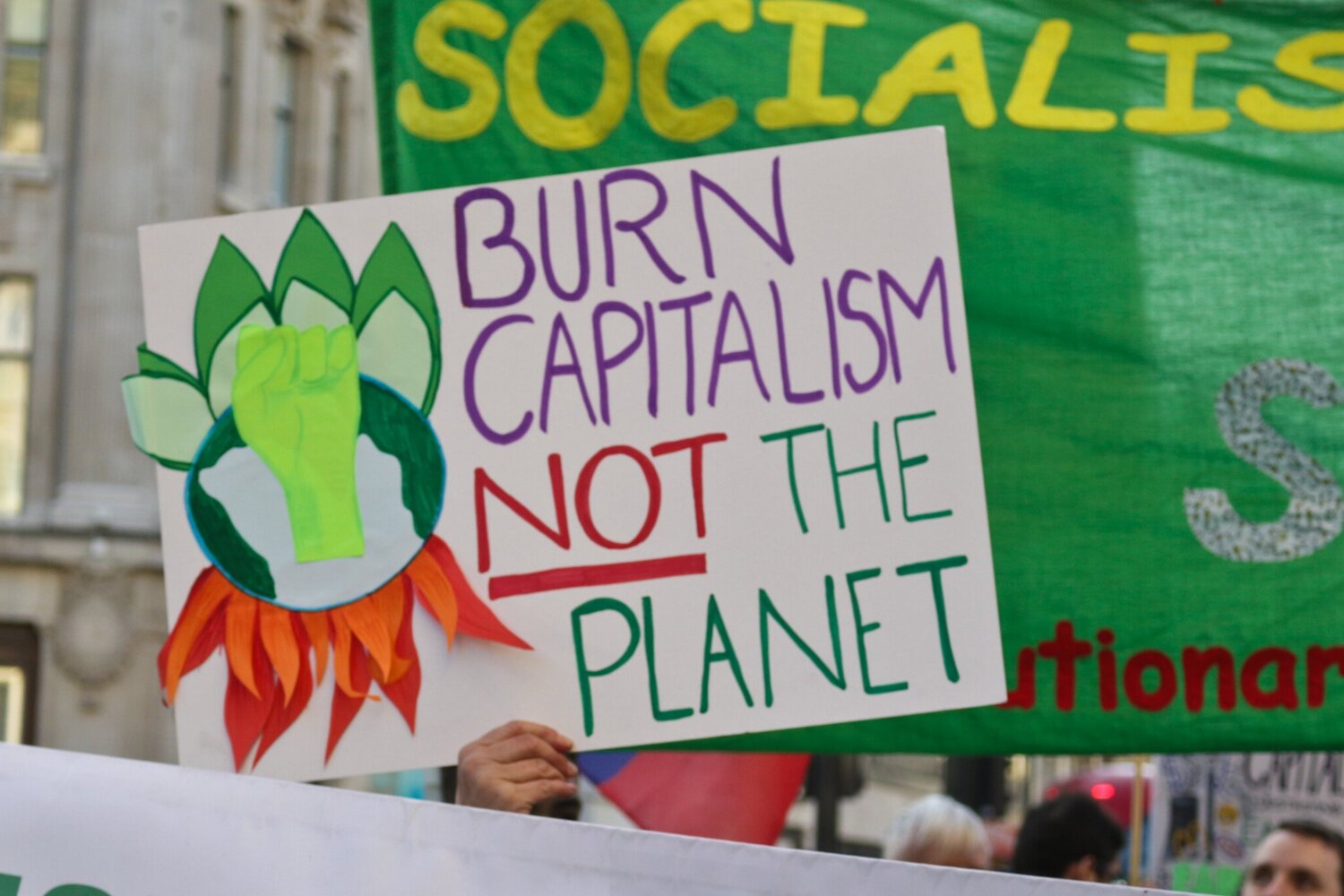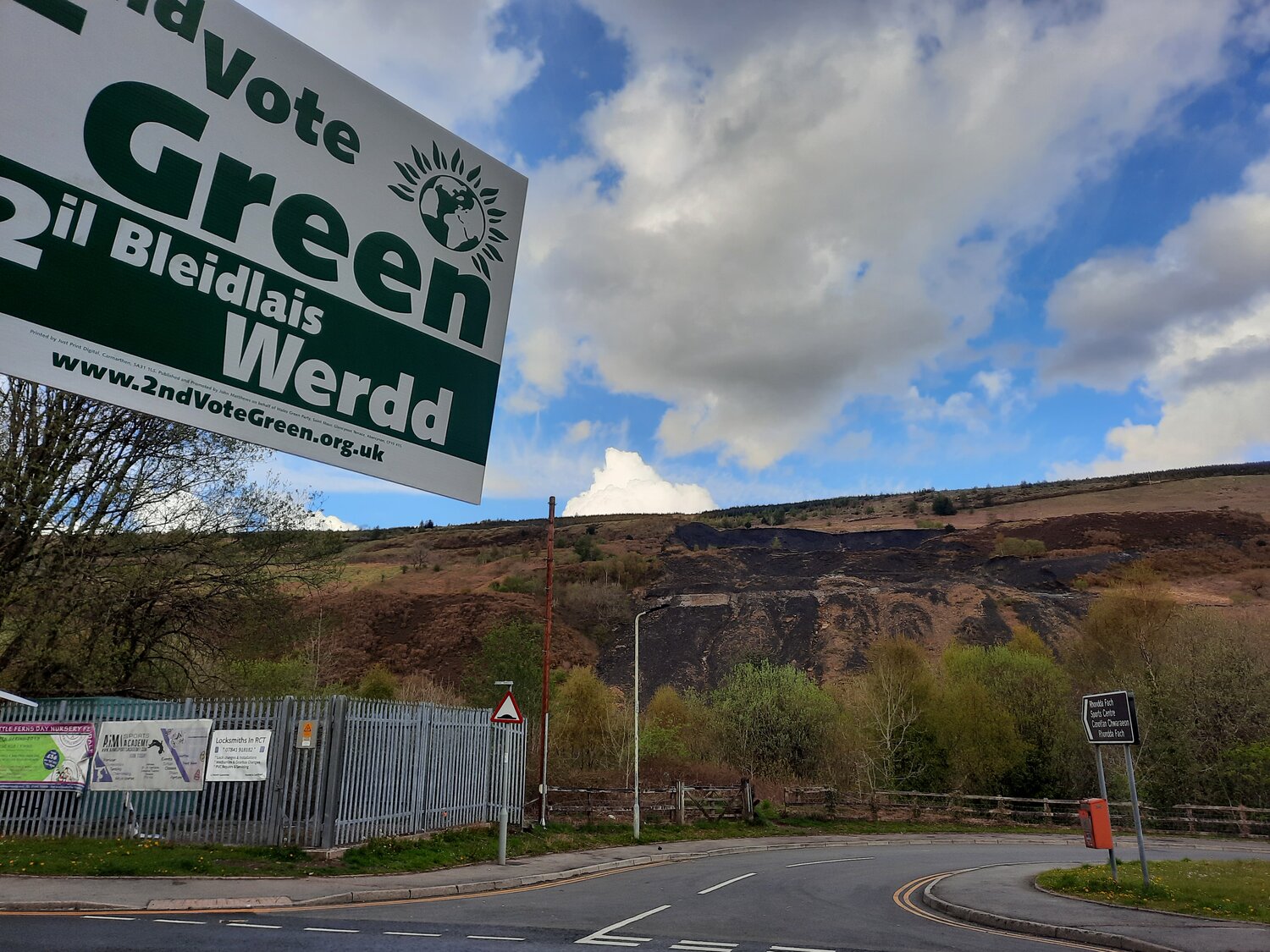
Forget the Greenwash: to Save Our Planet, Welsh Politics Must Challenge Capitalism | Yasmin Belhadj
Photo, Steve Eason
“WE CANNOT RELY ON OUR POLITICIANS TO DELIVER FOR THE ENVIRONMENT WITHOUT OVERTURNING A SYSTEM BUILT ON EXPLOITATION AND THE PURSUIT OF PROFIT.”
Over the last few years, the environment has become a major talking point for politicians, and The Senedd Election is no different. After the increased awareness of the climate and ecological crisis, from the youth strike for climate protests to David Attenborough’s documentaries on plastic pollution, the cause is seen as a vote winner.
But politicians in Wales -and the West in general – treat environmentalism as an issue affecting us in twenty or thirty years, setting targets to take action decades later. This is a narrow-minded approach, oblivious and ignorant to the people across the world already being affected by the climate catastrophe.
The environment is a global issue, and we should be working with other nations to reduce our impact on all countries. It could be said the United Nations are already doing this with the UN Climate Change Conference,but after the disappointing, and frankly appalling COP25 Conference, it is clear that world leaders have utterly failed when it comes to the environment.
What impact, if any, might upcoming in elections in Wales have on this situation?
During the months leading up to the Senedd Elections, we have seen a large number of pledges towards environmental and climate policies from political parties: A Clean Air Act from Labour, the creation of 15,000 green jobs from the Conservatives and a Nature Act from Plaid Cymru.
But are these election pledges truly enough to address the crisis we face?
The answer, unfortunately, is no. We cannot rely on our politicians to deliver for the environment within a Capitalist system of politics built against equity and sustainability, things that are at the very heart of environmentalism.
Even the Green Party, by far having the best stance on green policies, pledging to a Green New Deal and net zero emissions by 2030, have little in the way of strategy when it comes to fighting capitalism.
But unless we challenge our current political and economic system, which exploits both people and planet, we cannot reduce carbon emissions in the way we need and mitigate the climate crisis.
Corporations pumping out fossil fuels into our atmosphere and oil into our seas are the ones responsible for the greatest amount of emissions. While the people paying the price for their pollution are those living in marginalised communities, predominantly in the Global South, contributing the least to global emissions. These communities are devastated by the effects of capitalism and the profit motive, as sea levels rise and extreme weather forces thousands of people to flee their homes, becoming climate refugees and generally having significantly fewer resources to combat the climate crisis than the Global North.
Those responsible for exasperating climate change are often the ones furthest away from its catastrophic effects, with their wealth protecting them from the slightest possibility of harm.
Environmentalism must therefore be inherently anti-capitalist, as the capitalist economy is built on the idea of infinite growth, while the reality is we live in a world with finite resources.
Large polluters and corporations benefit from the consumer industries they have created, from exploiting natural resources without giving back to nature. Consequently, capitalist growth is exacerbating the climate and ecological crisis, and the world has reached a breaking point of mass destruction as a result.
At the same time, ordinary individuals are blamed for eating meat, or not using bamboo toothbrushes, whilst big corporations produce and control products consumed by the masses, fully aware of the extreme damage they are causing to people and the natural environment.
But unfortunately, the climate pledges we see from our politicians only reinforce this system and are built around a capitalist framework.
When the UK government pledges carbon neutrality by 2050, not only are these targets incredibly unambitious, but more importantly, the idea of carbon neutrality to our government does not mean reducing emissions and pollution. Their solution to the climate crisis is via offsetting emissions, which means producing carbon emissions in other countries so statistically and locationally, they have no responsibility for their actions. This form of greenwashing would portray our government as a leading example for other countries, receiving praise and acclaim, while in fact, they are masking their pollution behind publicity campaigns, and the climate catastrophe will not go away.
It is incredibly concerning how corporations, politicians and the media turn around questions of systemic change, into blaming anyone but themselves and pushing the dangerous narrative of individual actions being key to solving the climate crisis.
Instead, we need politicians to be unafraid of challenging the capitalist system in which we live. This is because the climate crisis cannot be tackled without systemic change towards serving the needs of ordinary people, with green and just ideals at the core. We need a green, socialist economy, investing in well paid green jobs, renewable energy and accessible housing while protecting our natural world from the devastation of climate change.
This would be an economy based around preserving our fragile world, and would go hand in hand with protecting the most vulnerable people in our society.
In order for Wales to truly be green, we need to dismantle and rebuild the economic and political systems we live in, so they serve the needs of people and the planet above exploitation and profit.
Yasmin Belhadj is an environmental activist with Teach the Future, a youth-led campaign pushing for better climate education


Even in Labour Dominated Wales, the Tory Restructuring of the Electorate Is Real | Gareth Leaman